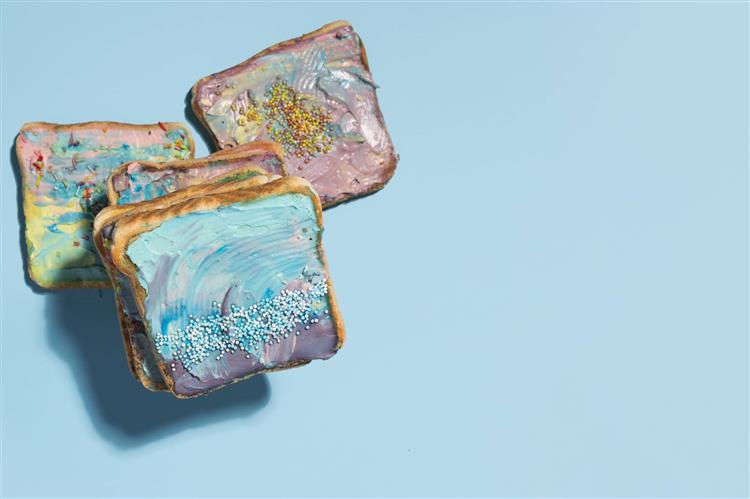
- 10 September 2024
- 2992 Views
Resin has become a popular choice for DIY enthusiasts due to its versatility in crafting, jewelry making, coating, and even small-scale construction. However, the drawbacks such as high cost, toxicity, and environmental concerns often prompt crafters to seek alternatives. Fortunately, there are numerous resin substitutes that can provide similar results while being safer, more cost-effective, and environmentally friendly. This guide will help you explore and select the right resin alternative for your specific DIY needs.
Understanding Resin Alternatives
Resin alternatives are materials that can replace traditional epoxy resin or polyester resins in various applications. These alternatives are chosen based on their ability to mimic the appearance, strength, and versatility of resin while addressing specific concerns like safety and environmental impact. Some common reasons to consider resin alternatives include reducing exposure to harmful fumes, cutting costs, or opting for eco-friendly options.
| Type of Alternative | Examples | Advantages | Considerations |
|---|---|---|---|
| Eco-Friendly Alternatives | Ecopoxy, ArtResin, Bio-based resins | Low environmental impact, non-toxic, safe to use without protective equipment | May be more expensive, some options can yellow over time |
| Clear Coating Alternatives | Varnish, Lacquer, Water-based Acrylics | Provides a clear, glossy finish similar to resin, less toxic options available | May not be as durable as resin, requires multiple coats for protection |
| Sculpting and Crafting Alternatives | Polymer Clay, Air-Dry Clay, Oven-Bake Clay | Versatile, easy to use, no need for complex curing processes, accessible for all ages | Less durable than resin, can be fragile or shrink over time |
| Functional and Structural Alternatives | Epoxy Clay, Concrete, Plaster | Durable, suitable for detailed sculpting and large projects, strong adhesive properties | Can be more difficult to work with, may require mixing and proper safety measures |
Types of Resin Alternatives
Eco-Friendly Alternatives Eco-friendly resin alternatives like Ecopoxy and ArtResin are gaining popularity for their lower environmental impact and safety features. Ecopoxy is plant-based, non-toxic, and does not emit harmful fumes, making it ideal for those who are conscious of their environmental footprint. ArtResin, on the other hand, offers a clear, glossy finish similar to traditional epoxy but without volatile organic compounds . These options are great for artists and crafters looking to reduce their exposure to toxic chemicals.
Clear Coating Alternatives For projects that require a glossy finish, alternatives like varnish, lacquer, and water-based acrylics can be used. Varnish and lacquer provide a clear, protective layer that mimics the look of resin coatings, while water-based acrylics offer a non-toxic and easy-to-clean option. These materials are perfect for furniture, artwork, and decorative items that need a smooth, protective finish.
Sculpting and Crafting Alternatives Materials such as polymer clay, air-dry clay, and oven-bake clay are excellent alternatives for resin in crafting and jewelry making. These clays are versatile, easy to work with, and do not require the use of molds or complex curing processes. Air-dry clay, for example, is non-toxic and hardens without the need for baking, making it accessible for all ages and skill levels.
Functional and Structural Alternatives For projects requiring strong, durable alternatives to resin, consider epoxy clay, concrete, or plaster. Epoxy clay combines the adhesive strength of epoxy with the moldability of clay, making it suitable for detailed sculpting and structural repairs. Concrete and plaster offer robust, long-lasting finishes ideal for larger projects like garden sculptures or functional home decor.
Factors to Consider When Choosing a Resin Alternative
Project Requirements: Consider what you need from the alternative—whether it's adhesive strength, a clear finish, or flexibility. For example, if you’re making jewelry that needs a crystal-clear finish, a product like ArtResin would be ideal.
Environmental Impact: Eco-friendliness is crucial for many crafters today. Choosing bio-based resins like Ecopoxy or other non-toxic alternatives helps reduce your carbon footprint and promotes safer crafting environments.
Ease of Use: Some alternatives, like air-dry clay, require little to no additional tools or safety equipment, making them ideal for beginners. On the other hand, options like epoxy clay might have a steeper learning curve due to mixing requirements.
Cost Considerations: Resin can be expensive, especially for larger projects. Alternatives like varnish or polymer clay are often more affordable and widely available, making them accessible for budget-conscious crafters.
Tips for Selecting the Right Alternative
- Evaluate Your Needs: Before choosing an alternative, think about the specific needs of your project. If you’re coating a surface, a clear alternative like water-based acrylic might be best. For intricate models or sculptures, epoxy clay could offer the durability and detail you need.
- Test Small Batches: It’s always wise to test a small batch of your chosen alternative on a similar material before committing to your entire project.
- Read Labels Carefully: Ensure that the alternative you select is suitable for your intended use, especially if it will be in contact with food or exposed to outdoor conditions.
in Conclusion: Choosing the right resin alternative depends on your project’s specific requirements, whether it’s achieving a clear finish, ensuring durability, or opting for eco-friendly materials. By understanding the available options and carefully evaluating your needs, you can find the perfect resin substitute that enhances your crafting experience while aligning with your values and budget.
